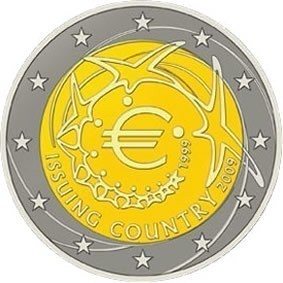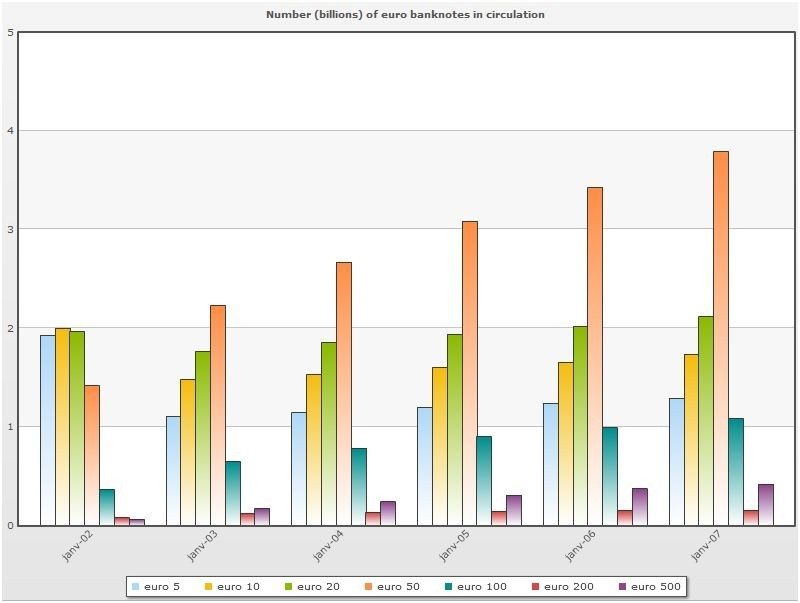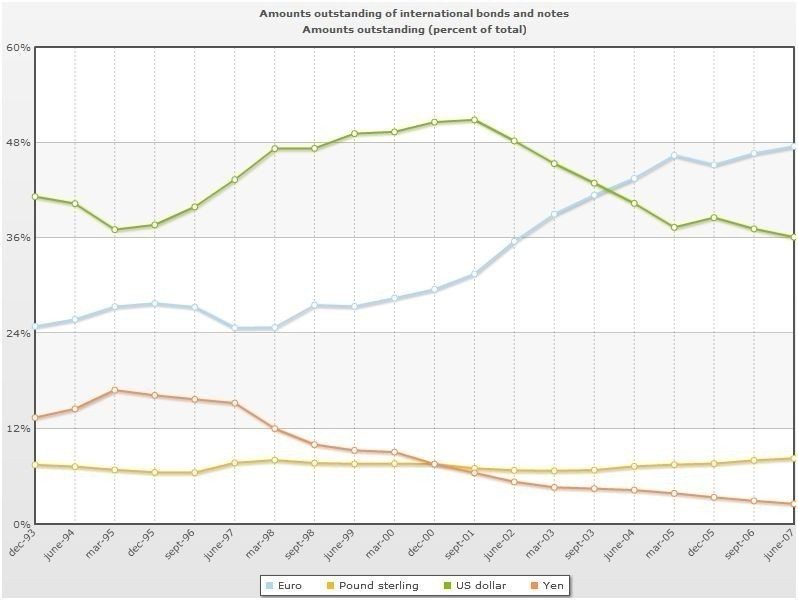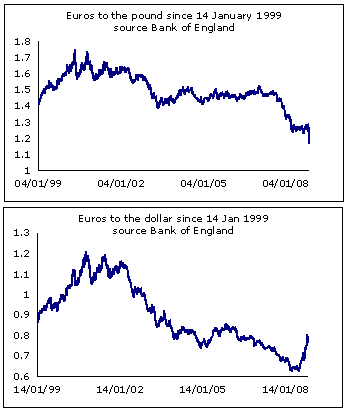
I cannot start 2009 without a nod to the euro, which celebrates its tenth birthday this year and provides so much work for us banking folks, especially those of us in the payments world.
The euro has had an interesting period of formulation from its origins in 1992:
February 1992
Maastricht Treaty signed by European Union’s Member States to create an Economic and Monetary Union (EMU)
January 1999
Austria, Belgium, Finland, France, Germany,
Ireland, Italy, Luxembourg, the Netherlands, Portugal, and Spain join the EMU, and
adopt the euro as a trading currency
January 2001
Greece joins the Eurozone
January 2002
The EU12 countries in the EMU
replace national currencies with euro notes and coins
January 2007
Slovenia becomes the 13th member of the euro currency group
January 2008
Malta and Cyprus join the Eurozone
January 2009
Slovakia joins the Eurozone.
In
total, we now have 16 countries officially using the euro covering 325
million people, more than the population of the USA.
There are also several
countries planning to join in the near future: Estonia in January 2011;
Bulgaria, Latvia and Poland in 2012; Lithuania in 2013; Romania in
2014; and the Czech Republic in 2015.
I also say 16 countries are ‘officially’ using the euro because there are many more who recognise it as legal tender, such as the French overseas territories of French
Guiana, Réunion, Saint-Pierre et Miquelon, Guadeloupe, Martinique,
Saint-Barthélemy, Saint Martin, Mayotte, Clipperton Island, and the
French Southern and Antarctic Lands; the Portuguese regions of the
Azores and Madeira; and the Spanish Canary Islands.
So happy tenth birthday, euro.
What’s the outlook for the euro in 2009?
This
year we see the critical milestone of the euro gaining an integrated
infrastructure to support it, with the launch of the Single Euro
Payments Area’s Direct Debits (SDD) in November. There are also legal
structures coming into play thanks to the Payment Services Directive
(PSD), which will also become law across all EU member states in
November.
Tickety-boo.
Now, there are plenty of
nay-sayers out there who claim that SEPA and the PSD are not working,
taking too long, don’t have the volumes and such like.
And
there are plenty of countries within Europe that still don’t like the
euro, such as Britain,
although there are others who like it more, such as Sweden and Denmark.
There
are strains on the euro of course.
For example, the strength of the
euro against the pound and dollar recently is challenging nations such
as Italy, Spain and Portugal in terms of interest rates, tourism and
exports.
But whatever you think about the euro, it’s here.
Is it here to stay?
Well, I’ve asked that question before, and the answer is yes. It is here to stay.
Although no country has left
the euro yet – we have only seen countries joining – I wholly expect
that there will be a casualty or two over the next five years.
This is
because of unemployment, interest rates, the liquidity issues in the markets, the challenges of change and more. This is why some countries are regularly accused of dragging their feet
over Financial Directive changes, such as with SEPA and MiFID. Spain in
particular is viewed a laggard, but then it might just be the manana
attitude?
Now I’m not saying Spain or Italy will leave the euro,
but it would not surprise me if someone did in the future. Why else would most large French shops still operate in dual currencies
– the euro and the franc. The French franc disappeared in 2002, but it’s still there in spirit, if not in body.
Someone will leave one day, but it is here to stay because, even
though you might find the strains in some countries during these
hard times, you still have the celebrations of the new countries
joining the Eurozone, such as Slovakia.
So
the euro is still a bit of youngster, but it’s now a decade on this
Earth and is challenging to become the reserve currency of the world.
Not bad for a ten year old.
Happy birthday euro.
Here's the special celebratory 10 year Euro coin, designed by the Central Bank of Greece.

And here are the euro bank notes in circulation.

Note the €500 note, as some countries do not issue or accept them. This is because the €500 note is the most susceptible to money launderers, being one of the largest available notes in circulation!
There's also the rising popularity of euro bonds versus pound, yen and dollar.

And the strength of the euro, particularly over the last year.

Pictures courtesy of Europa and Bank of England.
Chris M Skinner
Chris Skinner is best known as an independent commentator on the financial markets through his blog, TheFinanser.com, as author of the bestselling book Digital Bank, and Chair of the European networking forum the Financial Services Club. He has been voted one of the most influential people in banking by The Financial Brand (as well as one of the best blogs), a FinTech Titan (Next Bank), one of the Fintech Leaders you need to follow (City AM, Deluxe and Jax Finance), as well as one of the Top 40 most influential people in financial technology by the Wall Street Journal's Financial News. To learn more click here...

